The UK Government has announced £5 billion in cuts to disability benefits, what impact will this have on people with disabilities in Cardiff?
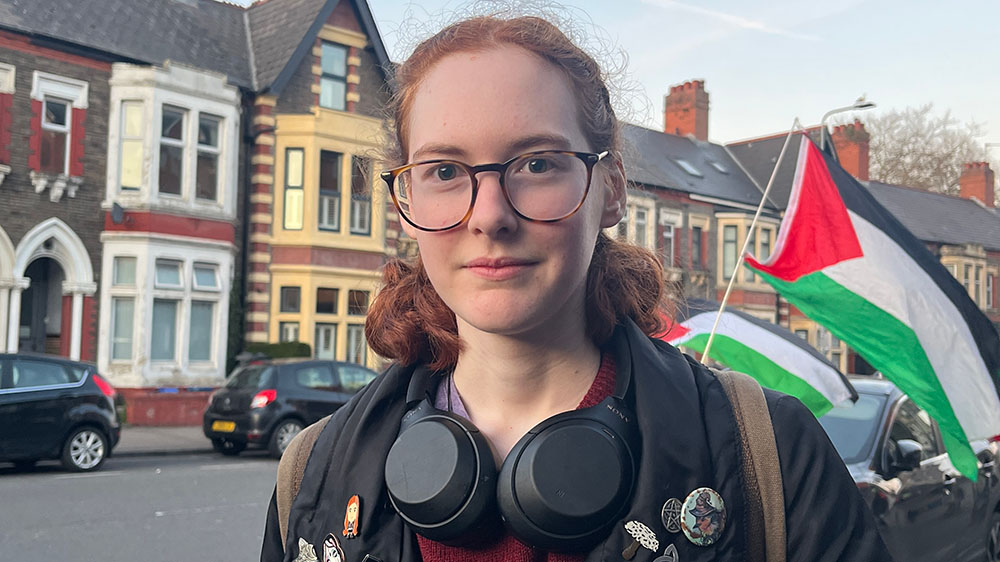
Seren scrolled through the news on her phone, shaken up by the headlines beaming up at her. A wave of panic and rage rushed over her as her fears became reality. As a disabled student, Seren’s benefits are vital to her managing her condition.
So Seren took to the streets, at her first protest. She stood beside her friends in a restless crowd, their voices echoed off the buildings as banners waved and torches lit up the dusk sky. For Seren, it was about raising awareness and pushing the Welsh Government to stand up against the cuts.
Seren, a student at Cardiff University, explains that there are a lot of hidden costs that come with having a disability. “The thought of not being able to do my degree because I don’t have the money to support me scares me. I need a lot of Ubers and with food I can’t really make meals, so I have to get ready made ones and it all really accumulates.”
The UK Government has planned to reduce disability payments to save £5 billion meaning over 3 million people will be worse off, according to the Official Assessment of the Health and Disability Benefit Reforms.
Seren explains that the thought of losing PIP is worrying for her. “I feel very hurt by the government and I’m very angry and very scared for me and a lot of my friends, my benefits are at risk,” says Seren. “I know I can’t go to university without these benefits.”
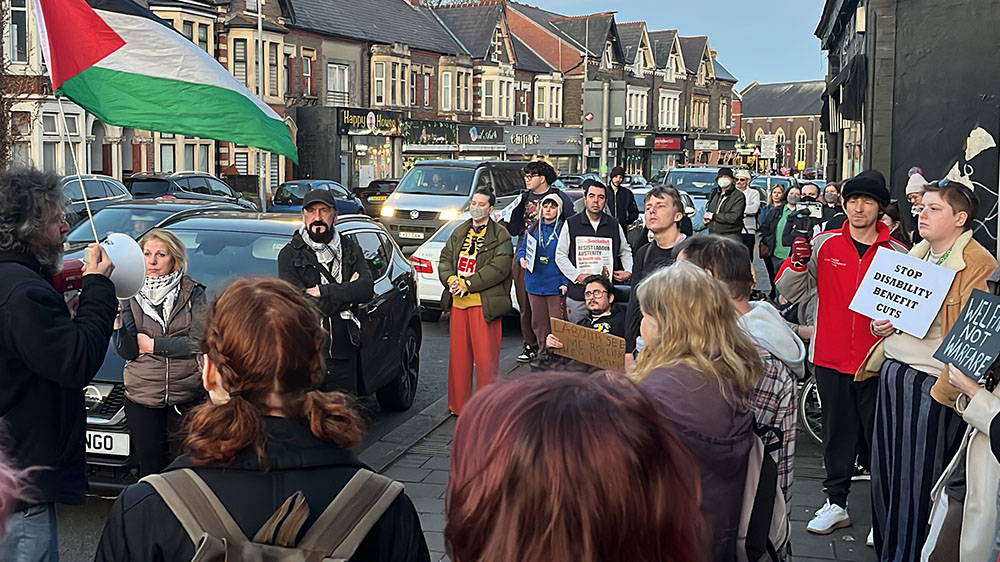
Adam Johannes, from Cardiff People’s Assembly explains that the benefit cuts will deprive disabled people. “This campaign we really have to win because we have no choice, the consequences of these cuts going through are catastrophic, hundreds of thousands of people are going to be pushed into poverty,” says Adam.
Cardiff student Sophia is hoping to claim PIP but feels concerned that less obvious disabilities are often not taken seriously. “A lot of people don’t realise how important those accessibilities are because you seem healthy but there is actually so much going on,” says Sophia. “I don’t think people in power know a lot about this so it’s kind of dangerous for a lot of people.”
Gaynor Griffiths, who attended the protest, explained that she has been let down by the welfare system many times. “They tried to put me on Universal Credit, when I was on ESA, they dropped that,” says Gaynor. “People don’t know what they are manipulating and changing with these benefits, and they are just dropping genuine people who really cannot work.”
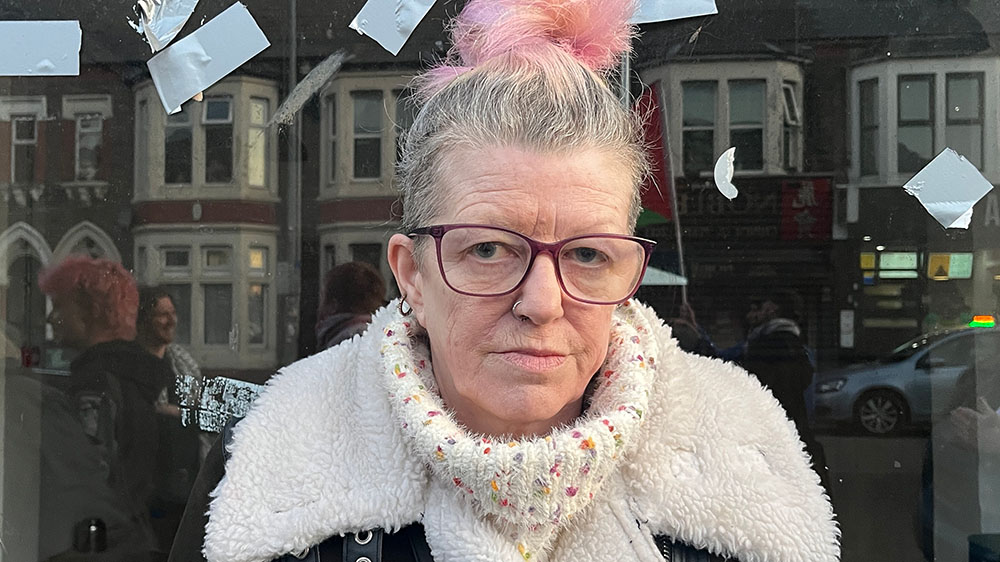
Wales has the second highest proportion of disabled people of working age in the UK, with just over 50% of those people in employment, according to the Bevan Foundation. This means that the benefit cuts will hit Wales particularly hard.
Sioned Williams MS, who is Plaid Cymru’s spokesperson on social justice, explains that the cuts are damaging people’s mental health already. “People are telling me they’re not sleeping. They are crying themselves to sleep, the anxiety levels are huge because they feel so uncertain now.”
Sioned, who is also Chair of the Senedd Cross Party Group on Learning Disability, explains that the cuts are symbolic of a wider issue surrounding attitudes towards disabilities. “This just gives strength to that narrative around ‘scroungers’ which is obviously abominable,” says Sioned. “That’s what I worry about, that it’s playing into those narratives around people who deserve our support.”
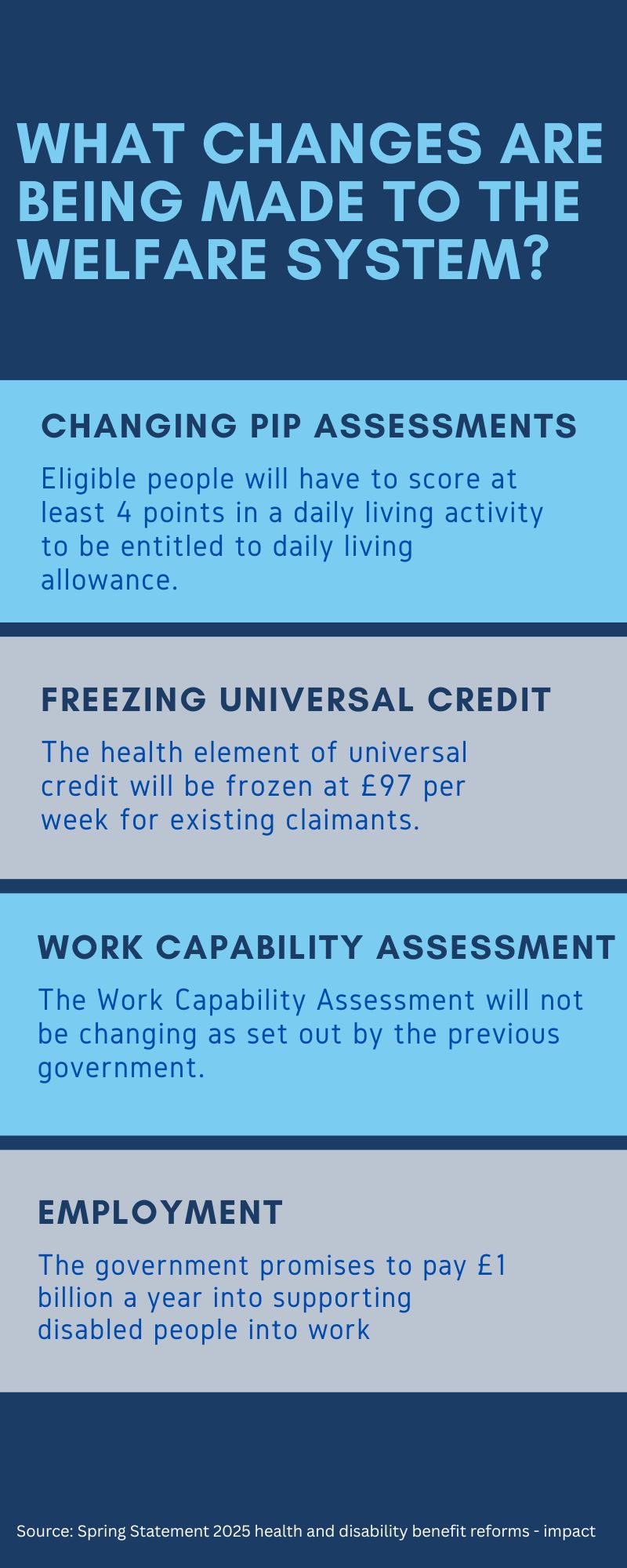
The decision to cut disability benefits will have a big impact on disability charities and organisations which people turn to for support.
Sioned explains that these charities will have to deal with an increase in costs. “One disabled persons organisation, a small charity that helps support people with learning disabilities into employment, said to me that it’s going to cost them £120,000 extra a year.”
Various disability charities are outraged by the Government’s plans. James Taylor, the executive director of strategy at Scope says, “The biggest cuts to disability benefits on record should shame the government to its core. They are choosing to penalise some of the poorest people in our society. Almost half of families in poverty include someone who is disabled.”
By 2030, 250,000 people including 50,000 children will be pushed into poverty. Sioned explains that the cuts are a backwards step in addressing child poverty. “Most families who are in poverty have young children,” says Sioned. “So, this is going to impact all the measures that are being taken to tackle child poverty as well.”
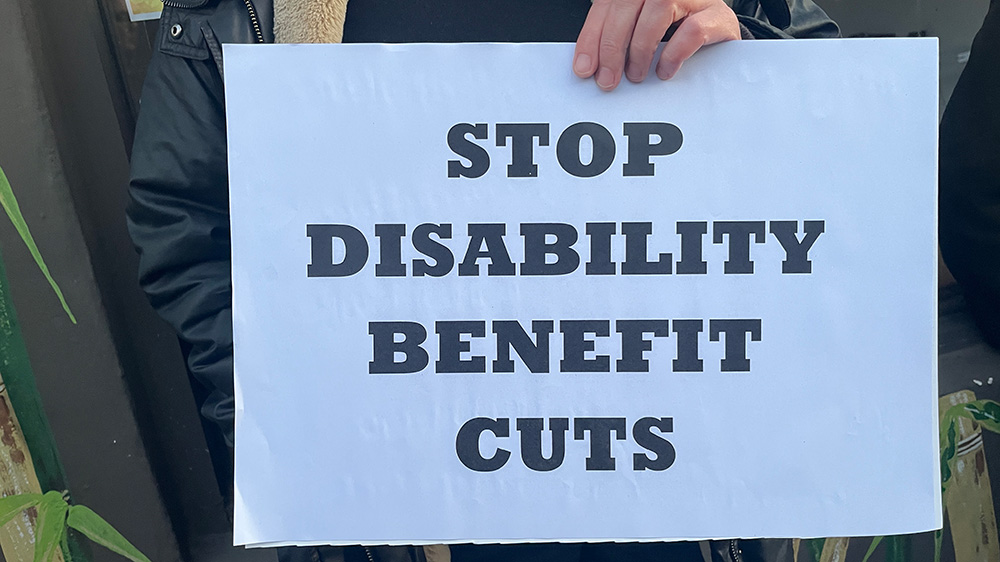
As it stands, disability organisations have set up campaigns against the benefit cuts. Scope has set up the ‘cost of cuts’ campaign which can be found here.
Adam explains that protesting and getting their message out there is crucial. “The only reason this is happening, I think, is because the Government thinks we won’t fight back,” says Adam. They think that we are vulnerable people, that we can’t stand up for ourselves so we have to show them we can.”
